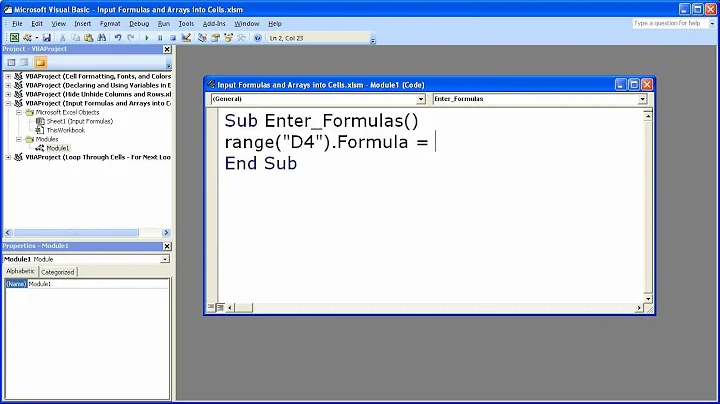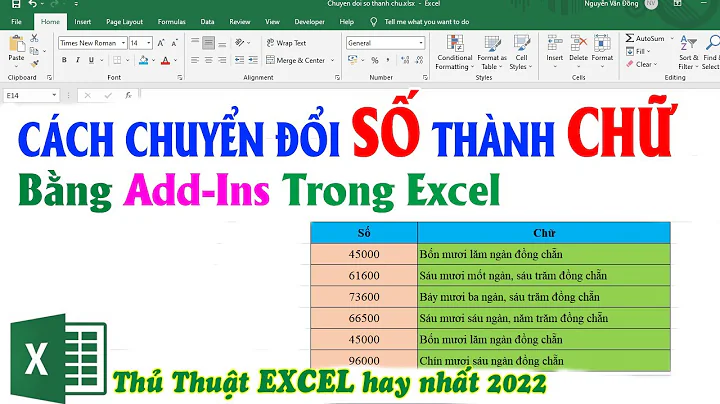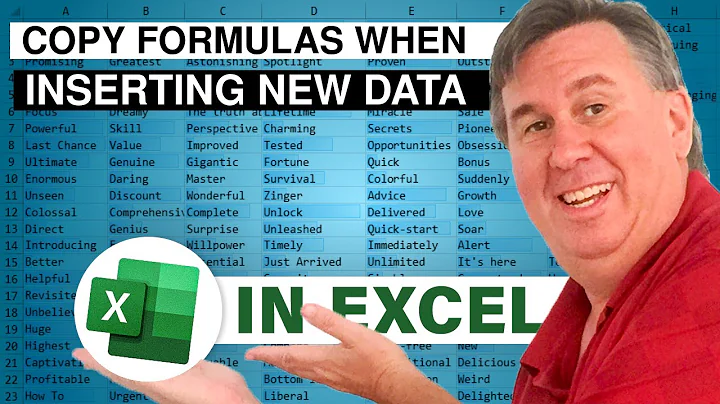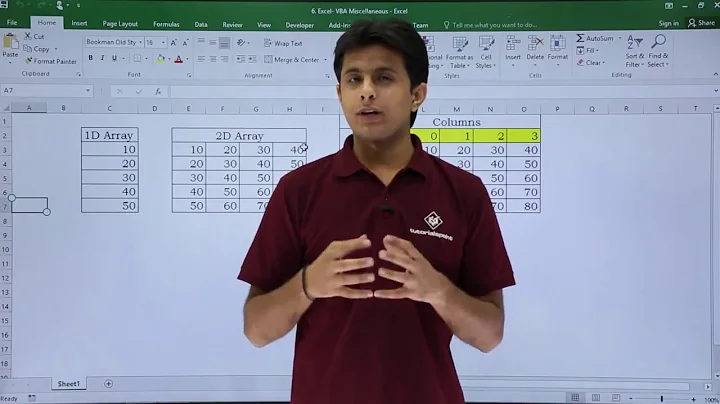Excel Macro, inserting internationally valid formula during run-time
Solution 1
Ok, thanks for helping me with this, you've helped me crack this one.
It is indeed not possible to just use English. One can use English when operating on a formula, eg. by setting coding Range("A1").formula="AND(TRUE)", but this does not work with FormatConditions.
My solution is a function that writes a formula temporarily to a cell, reads it through the FormulaLocal property, and returns the localized formula, like so:
Function GetLocalizedFormula(formula As String)
' returns the English formula from the parameter in the local format
Dim temporary As String
temporary = Range("A1").formula
Range("A1").formula = formula
Dim result As String
result = Range("A1").FormulaLocal
Range("A1").formula = temporary
GetLocalizedFormula = result
End Function
The returned formula can be used on FormatConditions, which will be re-localized or un-localized when the document is later opened on a different-language version of Excel.
Solution 2
I just found a very elegant solution to the problem in a German Excel forum. This doesn't write to a dummy cell but rather uses a temporary named range. I used the original idea (credit to bst) to write a translating function for both directions.
Convert localized formula to English formula:
Public Function TranslateFormula_LocalToGeneric(ByVal iFormula As String) As String
Names.Add "temporaryFormula", RefersToLocal:=iFormula
TranslateFormula_LocalToGeneric = Names("temporaryFormula").RefersTo
Names("temporaryFormula").Delete
End Function
Convert English formula to localized formula:
Public Function TranslateFormula_GenericToLocal(ByVal iFormula As String) As String
Names.Add "temporaryFormula", RefersTo:=iFormula
TranslateFormula_GenericToLocal = Names("temporaryFormula").RefersToLocal
Names("temporaryFormula").Delete
End Function
This is very handy if you need to deal with formulas in conditional formatting, since these formulas are always stored as localized formulas (but you could need their generic version, e.g. to use Application.Evaluate(genericFormula)).
Solution 3
Store (a trivial version of) the formula in a (hidden) cell in your workbook.
Then when you open the workbook that formula will be translated automatically by excel for the user.
Now you just have to dissect this formula in your script (find the opening bracket "(" and take the past left of that:
Use something like:
strLocalizedFormula = Mid(strYourFormula, 2, InStr(1, strYourFormula, "(") - 2)
where strYourFormula will be a copy from the formula from your worksheet.
I hope this works as I only use an English environment.
Also from reading this: http://vantedbits.blogspot.nl/2010/10/excel-vba-tip-translate-formulas.html I am thinking you should (only) be able to use the english version of a cell formula from VBA.
Solution 4
Maybe try this (untested as I only have English version insatlled)
Write your international version of the formula to an out of the way cell using Range.Formula . Then read it back from Range.FormulaLocal, and write that string to the FormatConditions
Related videos on Youtube
grovel
Updated on September 14, 2022Comments
-
grovel over 1 year
I've got an Excel spreadsheet, with a Macro, that inserts a conditional formatting, like this:
Selection.FormatConditions.Add Type:=xlExpression, Formula1:="=UND($A3=""" & lastName & """; $B3=""" & firstName & """)"As you can see, I've used the German formula for "AND" (i.e. "UND"), and obviously, this code doesn't work as soon as I use it on a French or English version of Excel. Usually formulas are localized automatically, but how can I insert a formula during run-time that will work on ALL versions?
-
 phuclv over 4 years
phuclv over 4 years
-
-
grovel over 11 yearsbtw. this temporarily destroys the value of A1, but then writes it back again. No issue in my implementation, but you might want to change the temporary cell if you use this yourself.
-
K_B over 11 yearsyou can also create a temporary worksheet for this, so you never interfere with any existing worksheet functionality you have (that relates to A1)
-
Kaniu almost 11 yearsAutomatic translation of formulas didn't work on validation functions either, but this solution saved my day.
-
 DrMarbuse almost 9 yearsThis workarount is also limited to be used in sub procedures, as functions are not allowed to change any cell...
DrMarbuse almost 9 yearsThis workarount is also limited to be used in sub procedures, as functions are not allowed to change any cell... -
lucky almost 9 yearsJust a VBA tip: don't give yourself the false impression that variables aren't declared until the
Dimline. In VBA, variables are hoisted, which means that putting yourDims right before using or in the beginning of the function are the same, but the former will eventually fool you into doing something wrong. -
Julien N over 8 yearsThis is a great idea, but it adds the sheet name to the range references ("$B$9" becomes "MySheet!$B$9" and FormatConditions doesn't like a Range with a sheet name.
-
 z32a7ul about 7 yearsThat would be really neat if it worked. Unfortunately, it doesn't. (On my computer, RefersTo also contains the local formula.)
z32a7ul about 7 yearsThat would be really neat if it worked. Unfortunately, it doesn't. (On my computer, RefersTo also contains the local formula.) -
 Ray about 6 yearsplease explain a little
Ray about 6 yearsplease explain a little -
T.M. over 5 years@MarcusMangelsdorf - For me the formula translation via adding names works in both directions without any issues +1 (local language German :-)
-
 Rafiki over 4 yearsIt works very well for some cases, but it depends on the selected cell in some cases... "$B2" becomes "MySheet!$B19" if the cell selected is on the 18th row, "MySheet!$B$12" if it's on the 11th row...
Rafiki over 4 yearsIt works very well for some cases, but it depends on the selected cell in some cases... "$B2" becomes "MySheet!$B19" if the cell selected is on the 18th row, "MySheet!$B$12" if it's on the 11th row... -
JustGreat almost 4 yearsIt's not working I am getting an error like if I can't use formula's in RefersTo field.
-
Mark over 3 yearsC# != VBA.. Heck, VBA != .NET - this "answer" has absolutely nothing to do with the question.









![How To Share & Sync Your Macro Enabled Excel Workbook Worldwide [Employee Mgr. Pt. 20]](https://i.ytimg.com/vi/3E6ExWYscHQ/hq720.jpg?sqp=-oaymwEcCNAFEJQDSFXyq4qpAw4IARUAAIhCGAFwAcABBg==&rs=AOn4CLDZdc8ZVqoWkH9rbCEmEOUXfpgikQ)

